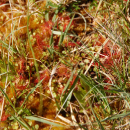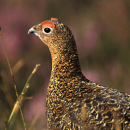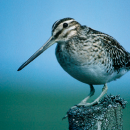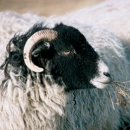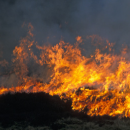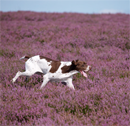20th April 2012
 Natural England has re-launching the Countryside Code and the refreshed version gives updated advice on rights of way, controlling dogs around livestock and wildlife, and preventing fires. Natural England, the Moorland Association, the National Farmers Union and the Ramblers are all encouraging people to read the Code to help them enjoy, respect and protect the countryside:
Natural England has re-launching the Countryside Code and the refreshed version gives updated advice on rights of way, controlling dogs around livestock and wildlife, and preventing fires. Natural England, the Moorland Association, the National Farmers Union and the Ramblers are all encouraging people to read the Code to help them enjoy, respect and protect the countryside:
- Enjoy the outdoors – Even when going out locally, it’s best to get the latest information about where and when you can go. For example, access to some areas of open access land and coastal land may be restricted in particular places at particular times. Find out as much as you can about where you are going, plan ahead and follow advice and local signs. This is particularly important for sensitive moorlands were dogs may not be allowed.
- Protect the natural environment – We all have a responsibility to protect the countryside now and for future generations, so make sure you don’t harm animals, birds, plants or trees and take home everything you brought with you. ‘Leave no trace of your visit’. When out with your dog make sure it is under effective control, and does not disturb farm animals, horses, wildlife or other people.
- Respect other people – Consider the local community and other people enjoying the outdoors. Remember that the countryside is a working environment and even small actions can lead to big disruption. Leave gates as you find them and take extra care to avoid the risk of starting wildfires. Unattended fires seen on the moors should be reported to the police and the nearest dwelling and barbeques and camp fires are illegal on open moorland.
Edward Bromet, Chairman of the Moorland Association said: “Natural England have done a good job at re-wording the Countryside Code to include vital information on how and why heather moorlands are managed which will help visitors understand why they need to follow the Code. At this time of year, the moors are alive with important ground nesting birds like curlew, golden plover, merlin and lapwing hidden away in the heather. The birds are hard to spot unless they are disturbed off their nests which can be fatal to eggs and chicks. Lapwings have been added to the Red List of birds of most conservation concern and walkers can help them and others breed successfully by sticking to paths.
“On open moorland, dogs are required to be kept on a short lead between 1 March and 31 July to help protect ground nesting birds, and all year round near farm animals – and in some cases dogs may not be allowed at all. It is particularly important to plan ahead to exercise your dog properly and consider walks that avoid sensitive moorlands and reduce the risk of unintended damage to wildlife and lambs.”
Chair of Natural England, Poul Christensen said “Spring is a fantastic time of year to get out and enjoy our beautiful landscapes. As a farmer, I know the countryside isn’t just a place for relaxation – livelihoods as well as wildlife depend on it and we all have a responsibility to care for it. The Countryside Code is a reminder of how we can all enjoy and care for our natural heritage.”
When you take your dog into the outdoors, always ensure it does not disturb wildlife, farm animals, horses or other people by keeping it under effective control. This new wording means that you:
- keep your dog on a lead, or
- keep it in sight at all times, be aware of what it’s doing and be confident it will return to you promptly on command
- ensure it does not stray off the path or area where you have a right of access
- Special dog rules may apply in particular situations, so always look out for local signs – for example:
- Dogs may be banned from certain areas that people use, or there may be restrictions, byelaws or control orders limiting where they can go.
- The access rights that normally apply to open country and registered common land (known as ‘open access’ land) require dogs to be kept on a short lead between 1 March and 31 July, to help protect ground nesting birds, and all year round near farm animals.
- It’s always good practice (and a legal requirement on moorland ) to keep your dog on a lead around farm animals and horses, for your own safety and for the welfare of the animals. A farmer may shoot a dog which is attacking or chasing farm animals without being liable to compensate the dog’s owner.


